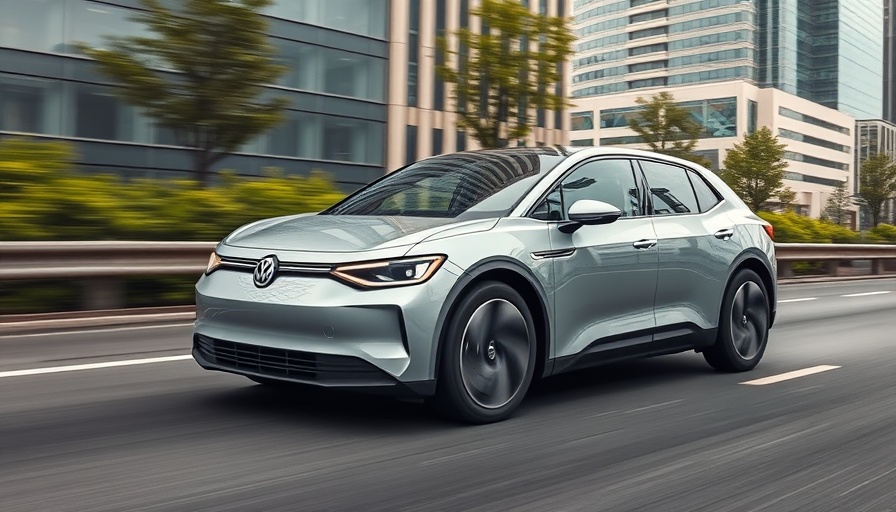
Volkswagen's Subscription Model: A Controversial Shift in Electric Vehicle Ownership
Imagine driving your new electric vehicle (EV), only to discover that more power comes at a price. Volkswagen is embarking on this very trend by introducing a subscription model that allows drivers to unlock additional horsepower—if they're willing to pay a monthly fee. This innovation raises questions not just about ownership and value but also about the future of the automotive industry.
What the Upgrade Entails
For owners of Volkswagen's ID 3 Pro and ID 3 Pro S models, the choice is clear but contentious. A monthly fee of £16.50 (around $22) enables drivers to access the full power of their 228 horsepower engines. Alternatively, a one-time payment of £649 locks in this capability for the vehicle’s lifespan. The automaker argues that this model caters to those who desire a sportier driving experience without the hefty initial cost of a higher-performance vehicle.
Historical Context: The Rise of Subscription Services
Subscription service models are gaining traction not just in automobiles but across various sectors. In recent years, consumers have begun to accept the idea of paying for features they want, as exemplified by streaming services like Netflix, which revolutionized how we consume entertainment. However, the automotive market's move toward similar models stirs mixed reactions among consumers. While some appreciate having choices tailored to their needs, others feel unsettled by the notion of paying continuously for features that may have once been included as standard.
Parallel Example: The Heated Seat Controversy
This isn’t an isolated phenomenon. BMW faced backlash for charging customers to access heated seats during colder months, presenting a new paradigm in vehicle features. Critics argue that these should be standard, raising questions about value for money. Just like Volkswagen's new subscription model, BMW's approach created discontent among customers who expected more from their investments in luxury automobiles. Such controversies reveal the fine line manufacturers walk in offering customizable options while maintaining customer goodwill.
Industry Insights: The Future of EV Subscriptions
As the automotive industry pivots towards software-defined vehicles, the implications of subscription models grow more complex. Industry experts suggest that digital subscriptions could represent a significant revenue stream for manufacturers seeking to recoup lost earnings in a rapidly evolving market. Though appealing from a business perspective, the challenge lies in transforming consumer sentiment to embrace this new era of car ownership.
The Emotional and Human Interest Angle
For many, purchasing a vehicle is a deeply personal experience. It's not merely a transaction; it signifies freedom, mobility, and emotional connection. Whether it's a family road trip or a daily commute, the vehicle becomes part of a person's identity. Introducing a subscription model can disrupt this unique relationship, causing anxiety over what once felt like a straightforward and secure investment.
Risk Factors: The Consumer Perspective
The risk of dissatisfaction looms large. By introducing subscription fees for in-demand features, manufacturers may alienate loyal buyers. This complexity around vehicle ownership is reminiscent of app models where users feel compelled to pay for premium versions to fully enjoy products. As the world moves toward smarter and more connected homes, consumers expect similar trends not to spill over into their cars.
Decisions To Consider: Navigating the Subscription Landscape
As subscription-based models spread through the automotive industry, potential buyers must navigate this new landscape. Do they value flexibility over upfront costs? Is the thrill of added horsepower worth monthly payments? Understanding these decisions is crucial for modern buyers who are keenly aware of their expenditures.
A Call to Action for the Community
As discussions around these subscription services evolve, consumers have a chance to voice their opinions and experiences. Engaging in community dialogues about the morality and feasibility of such models can influence manufacturers' approaches, pushing for fair practices, better value, and innovative solutions that reflect consumers' genuine needs. Let’s harness our collective voices in this conversation to shape the future of sustainable living and smart vehicle ownership!
 Add Row
Add Row  Add
Add 




Write A Comment